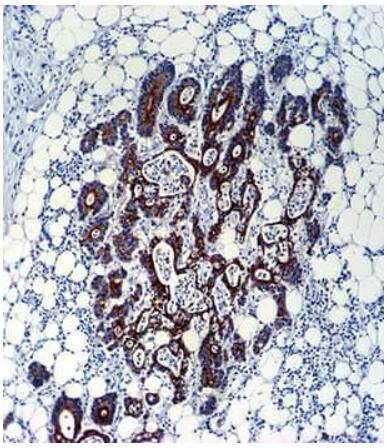
By Jamshed Arslan Pharm.D.
Natural killer (NK) cells are lymphocytes of the innate immune system that were first discovered for their “natural” ability to kill cancer cells. To use NK cells as anti-cancer therapy, they are co-cultured with feeder cells that are sensitive to attack by NK cells. The killing of feeder cells in turn generates highly efficient tumor-killing NK cells. However, a major challenge in using these ex vivo expanded NK cells as anti-cancer therapy is the highly immunosuppressive tumor microenvironment, partly because the cancer cells, myeloid derived suppressor cells and other stromal cells produce excessive amounts of transforming growth factor beta 1 (TGF-beta). This immunosuppressive cytokine has been speculated to downregulate the activating receptors (CD16 and NKG2D) on the NK cells, limiting the clinical efficacy of NK cell therapy. Working along these lines, researchers from various institutes in Ohio, USA, improved the anti-cancer potential of NK cells in TGF-beta-rich tumor microenvironments by inhibiting TGF-beta signaling.

Immunohistochemistry: TGF-beta 2 Antibody (220ct16.4.3.1) [NBP2-29972] - Formalin fixed and paraffin embedded human colon carcinoma followed by peroxidase conjugation of the secondary antibody and DAB staining. This data demonstrate the use of TGFB2 Antibody for immunohistochemistry. Clinical relevance has not been evaluated.
TGF-beta reduces the elevated cytotoxic functions of expanded NK cells
The researchers first isolated NK cells from healthy human volunteers. Quantitative flow cytometry showed that the ex vivo expanded NK cells had superior cytotoxicity against human colon cancer (HCT 116 and HT29) and myeloid leukemia (HL60) cells as compared to the freshly isolated IL-12-activated NK cells. As expected, exposing these expanded NK cells to clinically relevant levels of TGF-beta led to 11-78% decrease in cytotoxicity, depending on the exposure time. Flow cytometry and functional assays revealed that TGF-beta exposure decreased the following features of expanded NK cells: killing of colon cancer and myeloid leukemia cells; expression of NK cell activating receptors (CD16 and NKG2D); and production of TNF-alpha, IFN-gamma, perforin and granzyme B. These changes were reversed by adding a clinically used small molecule inhibitor of TGF-beta (called LY2157299).
This means that TGF-beta negatively impacts the anticancer function of expanded NK cells in human cancer cell lines. The next step was to validate these results in a mammalian model to infer the clinical significance of TGF-beta inhibition in NK cell therapy.
Inhibiting TGF-beta leads to superior antitumor functions of expanded NK cells in mouse
To determine the therapeutic efficacy of expanded NK cells, the researchers generated an immunodeficient mouse model of colon cancer liver metastasis using HCT116 xenograft. Although NK cells alone reduced the tumor burden and restored liver architecture to some extent, it was the combination of NK cells and LY2157299 that significantly rectified the diseased condition in mice. At this point, immunohistochemistry using CD45 antibody indicated that the mice receiving NK cells and LY2157299 had ten times greater NK cell infiltration into the liver tissue as compared to the mice that did not receive the TGF-beta inhibitor.
These data indicate that the dependence of NK cells on TGF-beta inhibition for combating tumors holds up in mice. Future studies are needed to see if the same principle is applicable in humans.
Significance
This study resolves a major obstacle in developing NK cell therapy by identifying the immunosuppressive role of TGF-beta in cancers. Besides improving the clinical efficacy of expanded NK cells against colon cancer and myeloid leukemia, this finding opens the possibility of treating various other malignancies using a combination of expanded NK cells and TGF-beta inhibitors.

Jamshed Arslan, Pharm D.
University of Alabama at Birmingham, School of Medicine
Dr. Arslan studies cell signaling in mitochondrial defects in C. elegans
and transgenic mice.
-
Otegbeye, Folashade et al. () Inhibiting TGF-Beta Signaling Preserves the Function of Highly Activated, In Vitro Expanded Natural Killer Cells in AML and Colon Cancer Models PLoS One